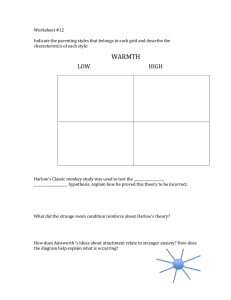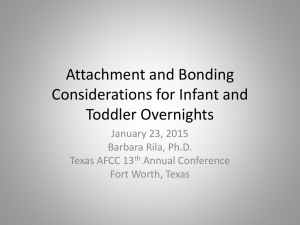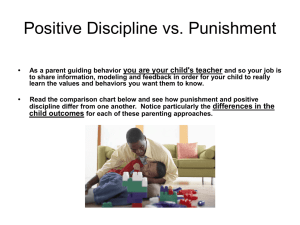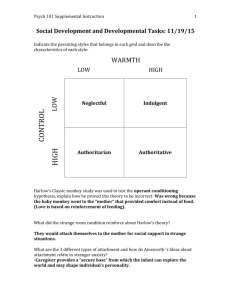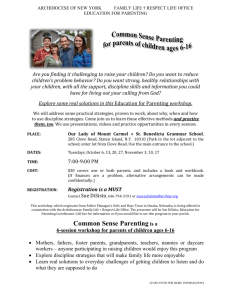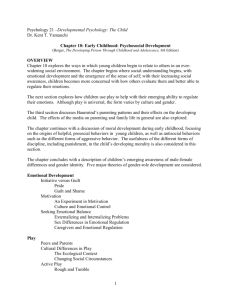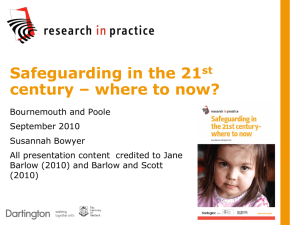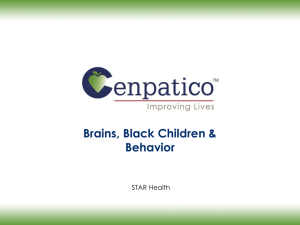CDExam3SGFall2011
advertisement
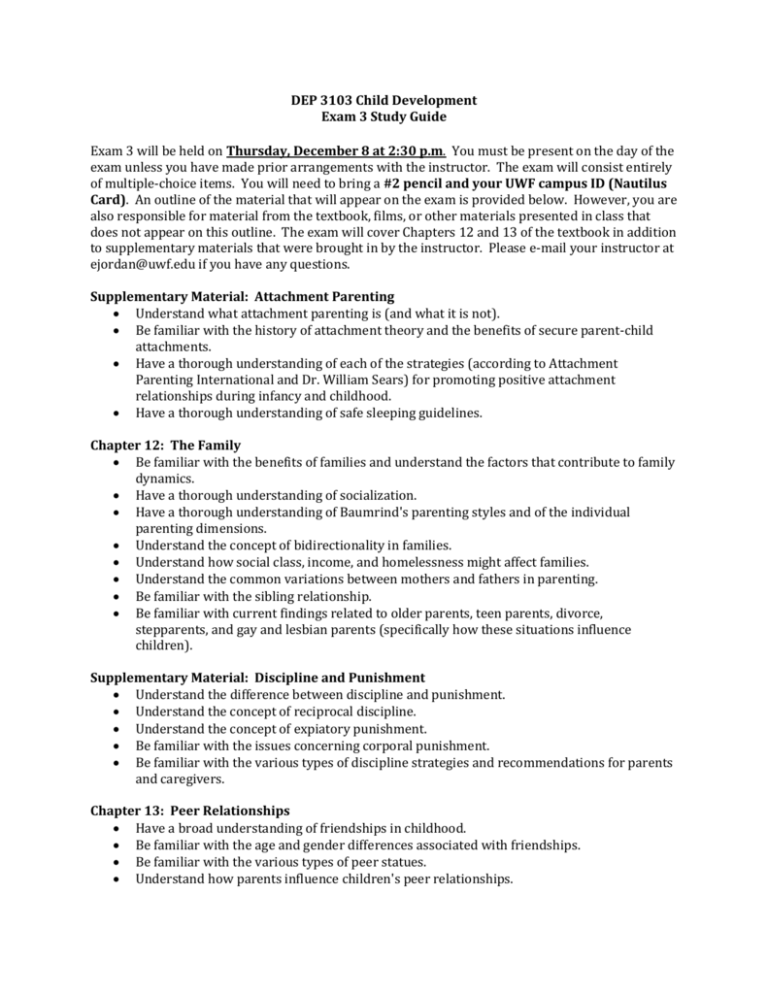
DEP 3103 Child Development Exam 3 Study Guide Exam 3 will be held on Thursday, December 8 at 2:30 p.m. You must be present on the day of the exam unless you have made prior arrangements with the instructor. The exam will consist entirely of multiple-choice items. You will need to bring a #2 pencil and your UWF campus ID (Nautilus Card). An outline of the material that will appear on the exam is provided below. However, you are also responsible for material from the textbook, films, or other materials presented in class that does not appear on this outline. The exam will cover Chapters 12 and 13 of the textbook in addition to supplementary materials that were brought in by the instructor. Please e-mail your instructor at ejordan@uwf.edu if you have any questions. Supplementary Material: Attachment Parenting Understand what attachment parenting is (and what it is not). Be familiar with the history of attachment theory and the benefits of secure parent-child attachments. Have a thorough understanding of each of the strategies (according to Attachment Parenting International and Dr. William Sears) for promoting positive attachment relationships during infancy and childhood. Have a thorough understanding of safe sleeping guidelines. Chapter 12: The Family Be familiar with the benefits of families and understand the factors that contribute to family dynamics. Have a thorough understanding of socialization. Have a thorough understanding of Baumrind's parenting styles and of the individual parenting dimensions. Understand the concept of bidirectionality in families. Understand how social class, income, and homelessness might affect families. Understand the common variations between mothers and fathers in parenting. Be familiar with the sibling relationship. Be familiar with current findings related to older parents, teen parents, divorce, stepparents, and gay and lesbian parents (specifically how these situations influence children). Supplementary Material: Discipline and Punishment Understand the difference between discipline and punishment. Understand the concept of reciprocal discipline. Understand the concept of expiatory punishment. Be familiar with the issues concerning corporal punishment. Be familiar with the various types of discipline strategies and recommendations for parents and caregivers. Chapter 13: Peer Relationships Have a broad understanding of friendships in childhood. Be familiar with the age and gender differences associated with friendships. Be familiar with the various types of peer statues. Understand how parents influence children's peer relationships.
